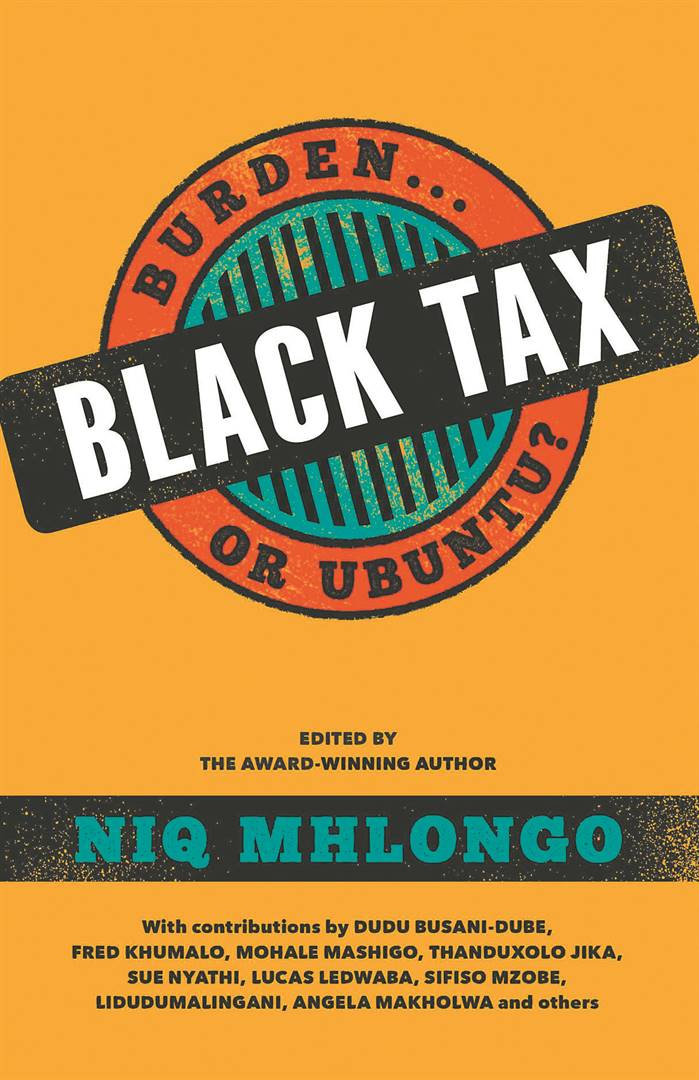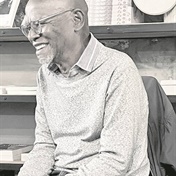
I grew up in the backwaters of Bethlehem in the Free State on simple principles – perhaps it was because we did not have much in our family.
My father was born in 1948, the year apartheid was legislated, a different time. In 1969, he walked through one of the biggest snowfalls in South Africa, barefoot. He left school after Form 1 (Grade 8), despite being an excellent pupil who attained a first-class pass. My father did not have any opportunities after leaving school.
Together, he and I are building a house right now, in the Free State. This is not black tax. My father and mother were domestic workers and today I am a university graduate. In their twilight years, who am I supposed to hand them over to? These are old people who did not have any financial opportunities, let alone financial education. I mean, my parents never earned enough to save for anything in the first place.
My father receives an allowance from me – not because he ever asked for it; on the contrary, he hates that I do this for him. He says I have my own family and that my first responsibility should be them. But this is our agreement: he gets electricity, airtime and an allowance based on what I can afford. I treat him to expensive restaurant experiences when my family and I visit him – and this is not a tax. It is a social pact that I have with him and my family.
My father has always propounded this very basic principle: you cannot eat when others are not eating. That is to say you cannot enjoy luxuries with impunity while others wallow in lack. This is how and why I know that what I am doing is merely part of my self-preservation.
What is “black tax”, anyway? It is a foreign concept to me, even though it is increasingly bandied about. Its narrative is wrong – for me at least – because it is premised on the selfish, capitalist attitude of “me first”, and I was not raised that way. I therefore reject it with contempt.
When I went to university, my brother – who started working right after college – supported me during the difficult financial patches. Today, we both have children. His child is mine and mine are his. This is not a burden or a tax – it is a duty that we perform for each other as blood brothers, as family. So, no, andizi! I do not believe helping your siblings or your parents is a taxation of any sort.
It is possible for us – for this generation of young professionals – to adopt a toxic narrative around this matter, especially if it’s being advanced by the media. We are a generation that grew up on TV and few books. We are educated, yet we often lack imagination. Therefore, anything we are told repeatedly seeps in easily and we consume anything that comes through those screens, even the toxic stuff. The narrative of black tax is exactly that – a toxic, nonsensical missive that we believe without any critical analysis.
There are many different experiences around this social construct called black tax, but a distinction must be made between forking out for lavish luxuries and helping with bare necessities. There is a difference between buying school textbooks or taking care of your orphaned batjhana (nieces and nephews) and being blackmailed into paying for lavish lifestyles by family members.
Sadly, some of us have allowed our families to abuse our status and professional standing. Siblings who refuse to work demand luxurious items we can barely afford, often merely for bragging rights, and we acquiesce. They get you to pay for useless things such as DStv, liquor, expensive parties or “slaying” – just so that they can be viewed a certain way by their neighbours.
Buying luxury goods for your siblings is not black tax – it is you being taken advantage of, especially if you cannot afford it. It is different from fixing your parents’ home, putting your deserving siblings through school, or paying for a destitute family member’s funeral.
Getting into debt to do it is not taxation, it is stupidity! As a professional and educated person who understands personal finance, you are supposed to know better.
We feel the pressure to fulfil such nonsensical whims when we do not have a clear social pact in place with our families. My family knows where I cut the umbilical cord – and that is at the essentials.
Materialism and wanting to compete with your peers in terms of financial success fuels the social construct of “black tax”. If we were not competing with the Joneses and Mokoenas from next door over a new house, a new car or better and bigger cellphones, then helping to build better futures for and with our families would not seem like a burden.
If you call it black tax, it means you expect something in return. When you pay taxes, you get something for it – roads, infrastructure and whatever government does with taxes these days. When you help your siblings because your parents have no income and no savings, do you do so with an expectation of sorts? If so, then you are correct in viewing this as a tax. But what I do for family members – up to a reasonable limit – is not owed to me.
Indeed, this is a matter of matsoho a ya hlatswana, one hand washes the other and re tjhabana sa kgomo, we are a nation of the same cow (hide). Matsoho a ya hlatswana does not mean providing for luxuries for your family, especially when you cannot afford it – that is a perversion of idioms.
Sesotho is rife with concepts of nationhood, a sense of community and family structure. It is sad to see these concepts being perverted by academics, the media and some demanding family members who feel entitled to our “success”. I am repulsed by how some academics have distorted the old adages of botho (ubuntu) to justify and further sell this social construct of black tax. Many have accepted this perversion of who we are without much critical thought, even though these are not just idioms, but capture the essence of who we are.
***
Black tax is an ill-informed, flawed social construct that I reject. I see it as misguided and ill-informed academisation and mainstreaming of black people’s struggles.
I was raised to believe that we should take care of each other. If our parents are considered a burden, mine is one I carry with pride. For me, it is a badge of honour.
As part of my pact with my father, he knows my salary and what I have to spend it on. He realises that city life is expensive and this has mitigated his expectations of me, to the extent that he sometimes refuses my acts of goodwill. It is all because I have set limits to what I can afford and what I can’t. If we can all reach this point, we will soon realise that our parents are not financially illiterate; that they know how money works and are often reasonable.
When she died at around 106 years old, my great-grandmother was living with us in an arrangement that you would consider part of black tax. She raised my father when my grandmother remarried, leaving my father behind and so utterly destitute that he had to give up his promising educational prospects.
Today, many grandparents and great-grandparents are confined to unloving, sterile and foreign old-age homes – just so their children can live in comfort and luxury. If you view taking care of your parents as any form of taxation, then you will find nothing wrong in sending them to an old-age home.
I am building a house for my father. It is my wife who encouraged me to do this and there are many reasons. Firstly, I do not want him to end up in an old-age home. Secondly, in terms of our culture, my children’s umbilical cords are supposed to be buried in the soil of my ancestral home. As white people still refuse us land, I cannot do this in Joburg, as one has to sell a kidney, a liver and two hearts to afford land in this place.
My only option is to build a cultural and traditional base for myself – for my children. This is best done on my father’s property in the township of Bohlokong. As taxing as this responsibility is, it is an act of self-preservation. When the house is complete, my children will have a piece of land to bury the umbilical cords of their own children.
While this might not be a big deal to many Africans in the city, it is crucial to those of us who come from a traditional and cultural upbringing.
Paying for the basics in my family gives me a sense of responsibility, of “adulting”. It also gives me status in my family – not because of my material wealth, but because I know where my father comes from. In his twilight years, I am his pillar. He has been mine since the day I was born.
I will not honour my father with empty gestures of expensive tombstones and caskets after his death, but now, with my presence, laughter, love and, yes, with my limited funds, too. He is my living ancestor, my older brother, the guardian of my children, and if he is a tax, he is one that I accept wholly and willingly.
- Phehello J Mofokeng is the author of Sankomota: An Ode in One Album and a multidimensional artist with more than 10 years of publishing and media experience
- This extract was taken from Black Tax: Burden or Ubuntu? edited by Niq Mhlongo and published by Jonathan Ball Publishers. Available at all good bookstores. Retail price: R260




 Publications
Publications
 Partners
Partners








